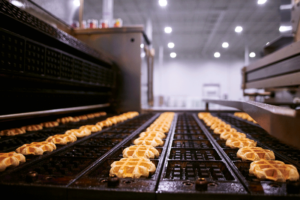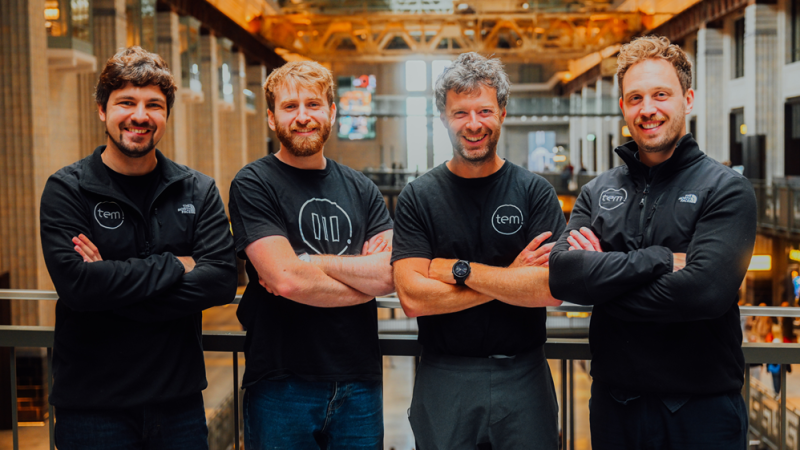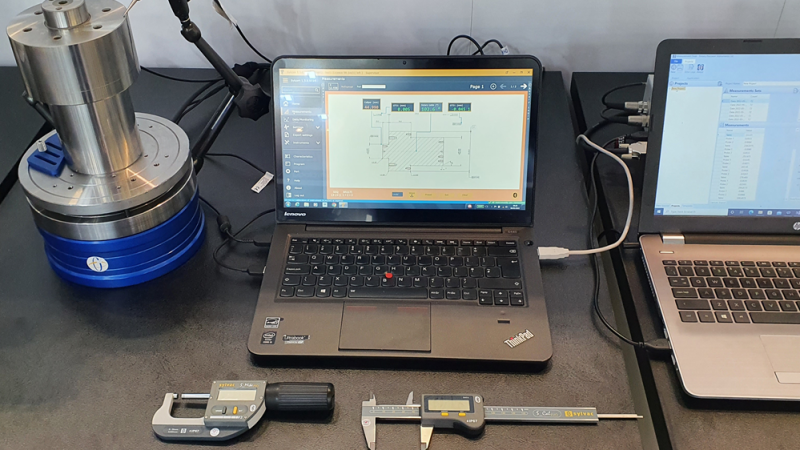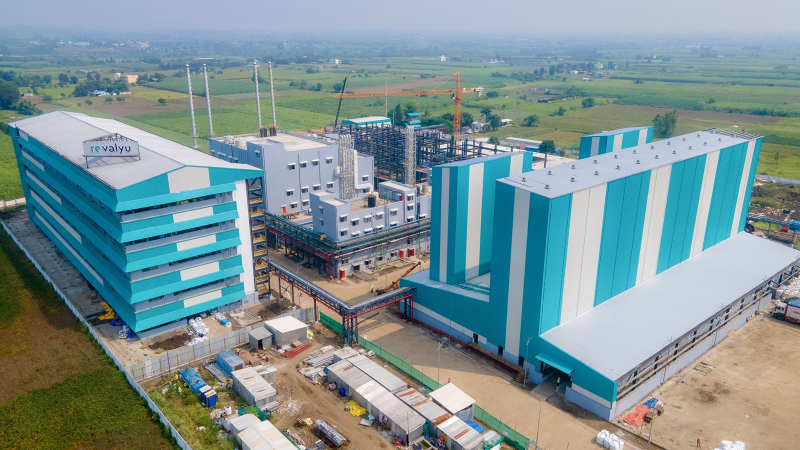Marson Foods has established itself as the leader for quality waffle foods and other breakfast items, with an established network of trusted distributors and brokers that help to serve customers across the United States. But now, from that strong position, the company is preparing to launch itself across the grab-n-go snack sector as a whole.
To differentiate itself and be in a place to compete across the entire snack field, Marson Foods has invested in one differentiator that makes it unique in the field.
“Our unique selling point is our use of automation,” explains David Marson, Co-Founder of Marson Foods. “Our plant is fully state-of-the-art, fully robotic, and high-speed. Technology is a big part of it, and that leads to heightened food safety and heightened food quality; the cornerstones of what attracts the big companies to partner with us.”
Marson Foods’ approach can be seen clearly in the new 150,000-square-foot bakery and distribution centre it has just opened.
“This state-of-the-art facility takes our products from raw material handling facilities all the way to packaging,” David says. “We have the latest technology in robotics and packaging. Currently, the facility has one production line that is capable of running 500 waffles a minute, but we have room to run seven production lines with a capacity of several million units a year across the waffle, breakfast and snack categories.”
 Automation-Empowered Staff
Automation-Empowered Staff
Whenever a business introduces automation technology, it is common to talk about the company’s staff as seeing the benefits of that technology, and sometimes that can seem disingenuous. Marson Foods, however, is able to point to real, concrete ways in which its automated approach has improved its staff’s conditions.
“Automation allows us to pay higher wages, attracting better employees,” David says. “But we also run a four-day week, which is very attractive to people while allowing for contingencies if we get an urgent order.”
This is not the first business that David, and his co-founder and wife, Jan Marson, have run, and the family-orientated shape of the business is one they see big advantages in.
“I have been on both sides, having run my other business and seen it become corporate. You get more flexibility as a family-owned business. There are not so many departments or layers when you make decisions,” David says. “You can get to market faster, be more flexible, and be able to produce products at a cheaper level by lowering barriers to entry.”
Jan Marson adds, “It is really powerful to have the owners’ footsteps in the plant, to be physically present and know people’s names. We do not have that many people, only 20 or so and we do not have a lot of turnover, so you get to know people. But we have learned the lessons of having been a bigger company with the rules, and policies, and safety standards. We are able to walk in both worlds.”
Across both businesses, David and Jan Marson agree that finding the right personnel has always been their biggest challenge. Automation is the key to overcoming that challenge.
“Automation does two things. It guarantees food safety and food quality because we have metal detectors, sifters, and other ways to stop foreign objects from getting into products,” David tells us. “It leads to consistency in the batches, and at 500 units a minute, it is essential to have the people it takes to put that into a box with a pick and play system, to get those products onto pallets and into boxes.”
Marson Foods operates shifts of approximately seven people, rotating with breaks and lunches, doing the work of 125 people thanks to a semi-automated system, unlocking the capabilities for higher wages while removing a lot of the repetitiveness from the manual work of the jobs. But as Jan Marson points out, it is not just about the type of work and how well it is paid, but also about disrupting the demographics of who can work in these environments and opening it up to a more diverse talent pool.
“You are opening up jobs to people who are smaller or less physically strong, such as women or people with disabilities, where before it was a highly physical job, lifting 50 lb flour sacks,” she points out.
 Built for the Work
Built for the Work
With their experience in other businesses, the Marsons also know the mistakes that can be made when introducing automation to a company.
“One of the things we have learned from our mistakes is that you have to build in redundancy,” David shares. “Everything breaks, everything breaks down. We have buffer systems in place to hold the production line if packaging goes down and increase the speed of the line to run that buffer out when necessary. Building in redundancy is the most significant thing you have to remember. Your equipment people tend to tell you that machines will run forever. Nothing runs forever.”
While those redundancies are vital, Marson Foods machines perform well precisely because they are designed by people working hand in hand with the staff on the production line.
“Our Research and Development staff work side-by-side with our production line staff, which is attractive to a lot of the big companies,” David says. “We can run trial samples for test marketing, an actual scaled-up version of what the line will look like where our competitors might offer a benchtop for trialling the production of their new products.”
It puts Marson Foods on a strong path for the future.
“We are a high-volume business. We are super attractive because of the infrastructure we have put in. We have some of the largest names in the country coming to visit us and look at the opportunities we can offer. The sky’s the limit for us.”
It also puts Marson Foods in a good position to give back, from the growth and benefit packages they are able to offer employees, to the steps the firm takes to invest back into the local community.
“The place is valuable, and the people are special,” David says.
Marson Foods recently received a business development leadership award because of the role they have played in the area, driving the local community. It is a place the couple continue to have strong ties to.
As David recounts, “When we sold our other business in North County, we took the zip codes of the people who were working for us, and when we came back we ensured the first philanthropic work we did was in the areas where the workers who helped us build our wealth with our first business lived. We wanted to be super conscious of those people.”







